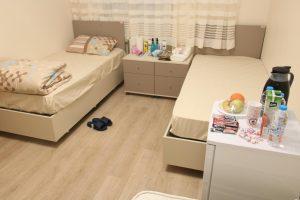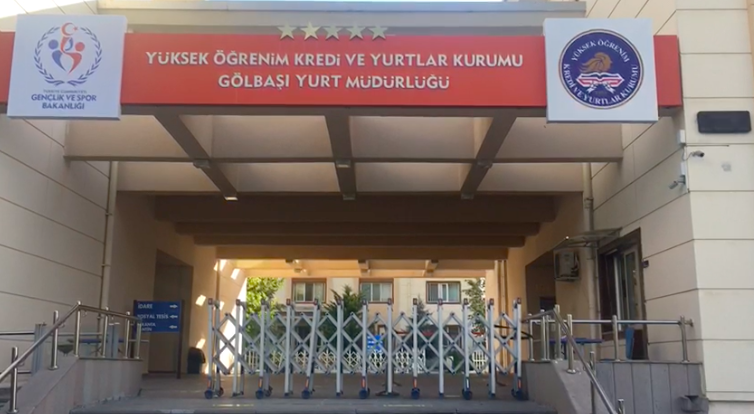ANKARA, TURKEY –– In response to the starkly rising COVID-19 numbers in the country, the Turkish government put forward a new mandate that utilizes currently unused college dorms in order to reduce the rate of infections.
The dorms, which were used before in March to isolate suspected COVID-19 patients, now house people who do not have the means to isolate properly or those who are breaking their mandated quarantine.
“If possible, all of those who are positive or have been identified as a person who was ‘in-contact,’ need to be using separate rooms and bathrooms,” said Dr. Solmaz Karakurt.
Identifying the Appropriate Population for the Dorms
To assess who needs to be quarantined, the Turkish Ministry of Health identifies, through contact tracing, people who are considered “in-contact” and therefore are at risk. Upon notice, all positives and in-contacts are asked to remain quarantined for at least 14-days and obtain HES codes, which are QR codes provided through the Department of Health. Aside from the law enforcement checks to scan codes, all government buildings and most private businesses check codes upon entry. Those violating their quarantine are also identified through house visits, according to the Lt. Governor of Ankara Bilal Bozdemir, and are taken into dorms for the duration of their quarantine period.

While those who do not have the means to properly quarantine can take advantage of these dorms, the new guidelines were implemented after The Ministry of Health found that a number of people were violating their mandated quarantine.
“We identified numerous people who were either positive or were considered “in-contact” roaming the streets,” noted Bozdemir, who is in charge of managing the dorms in Ankara. “When people don’t follow simple rules put in place for their health, we have to take certain measures.”
In Ankara, there are currently about 90 people who are in these dorms, with a majority of them being seasonal workers who do not have the means to isolate. The second largest group is people considered as “in-contact.”
The temporary residents of dorms have access to a private room and a bathroom in addition to three meals a day and snacks, and cleaning supplies, according to Lt. Governor.
“Making our guests feel comfortable while ensuring safety is our primary goal,” added Bozdemir.

The Process of Managing the Dorms
Many different government organizations, in addition to NGOs, take part in running these facilities.
“It’s a community effort,” said District Governor of Gölbaşı Tülay Baydar Bilgihan, who is in charge of the district where the dorms are located. “Many groups work together to help run the dorms efficiently and properly.”
These groups include The Turkish Red Crescent, which provides meals; The Turkish Ministry of Health, which provides healthcare and contact tracing; and, Disaster and Emergency Management Presidency, which offers logistical support. The District Governor added that many local organizations also helped to support the community.
“Our battle with COVID is not yet over, and it is impossible to detect whether it was a successful one or not at this point in time,” said Baydar Bilgihan. “We have to work as a country to assure that we experience minimal harm.”
So far, the country administered 11,278,047 tests and diagnosed 330,753 patients with COVID-19, according to the data shared by the Ministry of Health. While 290,352 of those patients recovered, 8,667 have died.
It is not yet clear if any more regulations will be set in place to battle COVID-19, however, government officials hope it will not be necessary.
“People shouldn’t need government regulations to follow the guidelines,” said Bozdemir. “What needs to be done is simple: wear a mask, practice social distancing, and maintain good hygiene.”







